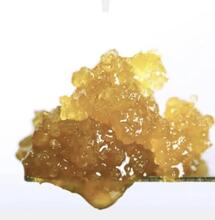The Rise of Cannabis Social Clubs

Cannabis Social Clubs are popping up all over Europe – and are the next logical step towards a safe and regulated cannabis market.
Cannabis social clubs are becoming increasingly common, especially in Spain and France, where the number of social clubs has snowballed over the last few years, partly thanks to global drug law reform.
In the UK, forming a cannabis club is legal, but the cultivation and distribution of cannabis are not. However, the UK has witnessed a significant increase in cannabis social clubs being created within the last 12 months.
What is a Cannabis Social Club?
Cannabis Social Clubs consist of adult associates who manage the growing and processing of a fixed amount of cannabis to meet their personal needs. Therefore, a closed circuit is established between producers and consumers, and specific requirements concerning health, safety, clarity and responsibility are required.
The ways a Cannabis Social Club functions hinge on the legal, political and cultural criteria of the country in which it is based. Regardless, there are some fundamental directions and philosophies that all Cannabis Social Clubs stick to and which differentiate them from other kinds of enterprises.
1. Supply Follows Demand
A CSC's production level has to be based on its members' estimated consumption level. Therefore, the supply is organised to meet the members' demand, not vice versa.
2. Non-Profitability
Cannabis Social Clubs are non-profit associations. The financial benefits that the association may obtain are used to boost the association's goals and are not distributed among the members. The aim of CSCs has to focus on generating legal employment and producing goods and services in a legal and taxable form.
3. Transparency
Cannabis Social Clubs are lawfully documented associations. Therefore, their internal organisation has to be democratic and participative. Therefore, all members are invited to have input on decisions.
CSCs maintain a record of their activities, easily consultable by members, other CSC or authorities. This includes financial accountability, an (anonymised) registration of members and their consumption, and an (anonymised) registration of production.
4. Public Health Oriented
Cannabis Social Clubs only use cultivation methods that meet organic agriculture standards. They develop an effective policy to prevent inappropriate use of cannabis and encourage safe and responsible use. This includes providing members with information on cannabis/hemp. In addition, they elaborate on research into health aspects of the cannabis they produce and inform their members of this research.
5. Open with Authorities
Cannabis Social Clubs must be willing to engage with authorities and implement an active policy to invite leaders to this dialogue.
Cannabis social clubs are a new concept, and many politicians, police agencies and governing bodies do not know how to handle them.
Of course, your success will depend on the laws of your country. For example, it will be much harder to become recognised as a medically beneficial and non-harmful organisation in the UK, where cannabis is not recognised as medically sound by the law.
In any case, building a reputation as an organisation that makes responsible and sound decisions and actively advises how social clubs can be better regulated and integrated into the law is essential.







